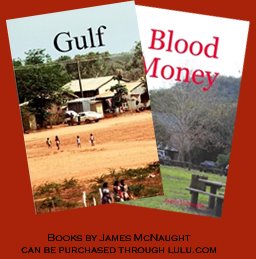(The view expressed in this blog are my own and should not be taken as inspired in any way.)
Would you like to read James McNaught’s novel Sinking Sand”? click here: Sinking Sand
2 Samuel 7:4–17, “And it came to pass that night, that the word of the LORD came unto Nathan, saying, Go and tell my servant David, Thus saith the LORD, Shalt thou build me an house for me to dwell in? Whereas I have not dwelt in any house since the time that I brought up the children of Israel out of Egypt, even to this day, but have walked in a tent and in a tabernacle. In all the places wherein I have walked with all the children of Israel spake I a word with any of the tribes of Israel, whom I commanded to feed my people Israel, saying, Why build ye not me an house of cedar? Now therefore so shalt thou say unto my servant David, Thus saith the LORD of hosts, I took thee from the sheepcote, from following the sheep, to be ruler over my people, over Israel: And I was with thee whithersoever thou wentest, and have cut off all thine enemies out of thy sight, and have made thee a great name, like unto the name of the great men that are in the earth. Moreover I will appoint a place for my people Israel, and will plant them, that they may dwell in a place of their own, and move no more; neither shall the children of wickedness afflict them any more, as beforetime, And as since the time that I commanded judges to be over my people Israel, and have caused thee to rest from all thine enemies. Also the LORD telleth thee that he will make thee an house. And when thy days be fulfilled, and thou shalt sleep with thy fathers, I will set up thy seed after thee, which shall proceed out of thy bowels, and I will establish his kingdom. He shall build an house for my name, and I will stablish the throne of his kingdom for ever. I will be his father, and he shall be my son. If he commit iniquity, I will chasten him with the rod of men, and with the stripes of the children of men: But my mercy shall not depart away from him, as I took it from Saul, whom I put away before thee. And thine house and thy kingdom shall be established for ever before thee: thy throne shall be established for ever. According to all these words, and according to all this vision, so did Nathan speak unto David.”
David always understood that the Lord was in control of his life and was willing to do what the Lord commanded. However, after Nathan left David the Lord came to Nathan and told him to tell David that David was not to build the Temple. David’s job was to establish a powerful kingdom that was at peace with its neighbours. Of course, this peace was established by the power of David’s armies in a largely hostile region. The Lord told David that His Presence had been in the Tabernacle since the time that it was first built nearly 400 hundred years earlier. The Lord reminded David of what He had done for David. David was the youngest son of his father who worked as a shepherd. The Lord took David from all that and, eventually, brought him to the king’s palace in Jerusalem. David had been a man of war and it was better for him to wait until his son was king after him. This son would build the Temple and he would be given the choice of making a covenant with the Lord and keeping the Lord’d commandments just like David.
